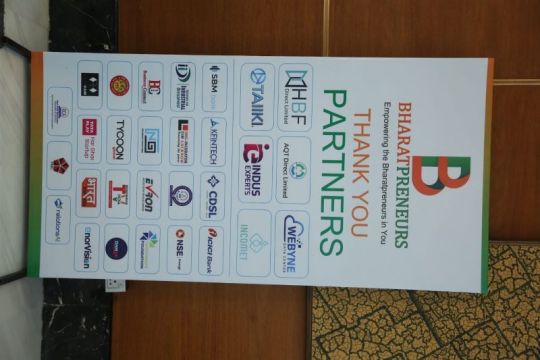#m&a financial advisory
Explore tagged Tumblr posts
Text


















Equi Corp Legal has the best lawyers in Delhi NCR
#Corporate Disputes Litigation Lawyers in Delhi#Insolvency Bankruptcy NCLT Lawyers in Delhi#Private Equity Funds Investment Transaction Advisory M&A Lawyers in Delhi#Technology E-Commerce Fintech Blockchain Lawyers in Delhi#Regulatory Compliance Legal Audits in Delhi Noida#Director Investor Shareholder Dispute Litigation Lawyers in Delhi#Sports Gaming lawyers in Delhi#Startup Investor Lawyers in Delhi#Banking NBFC Financial Services DRT Debt Restructuring Lawyers in Delhi#Corporate lawyers in Delhi#Arbitration Lawyers in Delhi#Consumer Protection Lawyers in Delhi#Commercial Civil Disputes Litigation Lawyers in Delhi
10 notes
·
View notes
Text
Buy Side financial due diligence Dubai
Revive has conducted many efficient and successful buy-side due diligence in Dubai, and has helped many investors/buyers in making an informed decision about their investment/purchase respectively.

#Buy Side financial due diligence Dubai#Revive Corporate Finance Advisory#M&A Advisory Services Dubai
0 notes
Text
Zachary Fond - An M&A Executive At SABMiller
Zachary Fond joined the Alta Semper team in 2016 and has close to a decade of experience in financial services. He has built a career working for M&A and capital groups and worked in the entire private equity life cycle including new investments, portfolio management, fundraising, and exits. Mr. Fond worked for Emerging Capital Partners, advising consumer and retail investments in Kenya. He is a University of Pennsylvania alum and received his MBA.
1 note
·
View note
Text
Financial Due Diligence Process
Caston Corporates Advisory
We provide support throughout the transaction life cycle on both the 'buy side' and 'sell side' including pre-bid assessments; financial, commercial and operational due diligence and advise on deal structuring. We also identify potential integration problems and help develop integration plans.
Financial Due Diligence
All businesses involved in an acquisition, as buyers or sellers, need to ensure that the financial information they hold is as accurate as possible, not only to prevent paying too much (or in a seller’s case receiving too little) but also to ensure that their governance and risk management objectives are met.
We can help you in
Establishing the understanding of the target business and therefore increasing the likelihood of the deal achieving its objectives.
Providing purchaser with greater certainty over the nature of the business and the characteristics of its cash flow. This helps pricing decisions and the level of gearing the structure will support.
By helping you to reduce disruption to the business as the sale process is more controlled.
By providing rapid execution of the divestment from the point of announcement for vendors. This reduces the business disruption and accelerates transfer to new owners
Commercial Due Diligence
Commercial Due Diligence is the process of appraising a target by reference to its market. We tackle the issues at the heart of the business such as market conditions and outlook, macroeconomic and regulatory influences, industry structure, competitive position, and relationships with key customers and suppliers.
Caston Corporate Advisory Services can help you in providing a comprehensive understanding of the technologies, customers, trends, legislation and powerful buyers in the market to decide the best approach when you are looking at emerging market, to take full advantage of these opportunities.
visit url : http://castoncorporateadvisory.in/Finance_Due_Dilligences
#castoncorporateadvisory#caston#due diligence#financial due diligence#finance#trade finance#m & a advisory services#buy side
0 notes
Text
Andra Watkins at How Project 2025 Will Ruin YOUR Life:
Here’s a list of every listed Project 2025 author who worked in 45’s administration. 26 of 36 total authors. (72%) Jonathan Berry - US Department of Justice Adam Candeub - Assistant Secretary of Commerce and Deputy Associate Attorney General Brendan Carr - Senior Republican on the Federal Communications Commission Benjamin S. Carson, Sr., MD - Secretary of the US Department of Housing and Urban Development Ken Cuccinelli - Acting Director of US Citizenship and Immigration Services; Acting Deputy Secretary for the US Department of Homeland Security
Rick Dearborn - Deputy Chief of Staff Diana Furchtgott-Roth - Deputy Assistant Secretary at the US Department of Transportation Thomas F. Gilman - Assistant Secretary of Commerce and Chief Financial Officer at the US Department of Commerce Mandy M. Gunasekara - Chief of Staff at the Environmental Protection Agency Gene Hamilton - Counselor to the Attorney General at the US Department of Justice Jennifer Hazelton - senior strategic consultant for the Department of Defense Dennis Dean Kirk - senior positions at the Office of Personnel Management
Christopher Miller - several positions during the 45 administration in areas of defense Mora Namdar - Assistant Secretary of State for Consular Affairs Peter Navarro - Director of 45’s Office of Trade and Manufacturing Policy; also went to jail William Perry Pendley - led the Bureau of Land Management for 45** Max Primorac - acting Chief Operating Officer and Assistant to the Administrator, Bureau of Humanitarian Assistance, US Agency for International Development Roger Severino - Director of Civil Rights at the US Department of Health and Human Services Kiron K. Skinner - Director of Policy Planning and Senior Advisor at the US Department of State
Brooks D Tucker - Assistant Secretary for Congressional and Legislative Affairs and Acting Chief of Staff Hans A von Spakovsky - former member of 45’s Advisory Committee on Election Integrity Russ Vought - Director of the Office of Management and Budget William L. Walton - member of 45’s transition team Paul Winfree - member of 45’s transition team Paul Dans - Chief of Staff at the US Office of Personnel Management and senior advisor at the US Department of Housing and Urban Development Steven Groves - Assistant Special Counsel, the Mueller investigation If 25 of the 36 listed authors of Project 2025 worked in my former administration, there’s NO WAY I wouldn’t know about it.
Andra Watkins has a list of the Project 2025 authors who worked for Donald Trump.
#Project 2025#Donald Trump#Peter Navarro#John McEntee#Paul Dans#Russ Vought#Hans von Spakovsky#Roger Severino#Max Primorac#William Perry Pendley#Mandy Gunasekara#Christopher Miller#Ben Carson#Ken Cuccinelli#Rick Dearborn#Trump Administration#Brendan Carr
14 notes
·
View notes
Text
The Role of Investment Banks in the Global Economy
The investment banking industry improves global corporations and efficient financial systems as it helps companies secure more capital. Therefore, enterprises can plan, access, and share their assets while institutional investors benefit from fair deal negotiations. This post will describe the role of investment banks in the global economy.
What Are the Investment Banks?
Investment banks (IBs) function like financial intermediaries between issuers of securities and investors. Moreover, established companies approach them when planning initial public offerings (IPOs) or seeking underwriting facilities. The growing significance of investment banking services results from the need to aid companies throughout securities issuance and ensure the capital markets' performance.
Simultaneously, high net-worth individuals (HNWIs) and public funds rely on IB professionals to handle valuation, deal negotiations, and company profiling related to privatization. However, most investment banks become market makers because they buy or sell a security at a quoted price. This approach provides liquidity for trading and mitigates IPO undersubscription risks.
Many companies also require extensive capital support to increase research, enter new markets, and expand their capacity. Therefore, they gather funding assistance based on investment bankers’ recommendations and fundraising strategies.
Important: An investment bank can be an independent organ of an established commercial banking brand. Doing so helps eliminate conflict of interest and maintain stakeholders’ trust.
The Role of Investment Banks in Global Economy: Market Making and Corporate Finance
Every IB has two divisions, namely market making and corporate finance. What is market-making in investment banking? When an investment bank acts as a facilitator between buyers as well as sellers of securities, like stocks or bonds, it is a market maker.
This role allows investment bankers to enable smoother transactions, making them popular across business development services and strategies. On the other hand, corporate finance involves helping companies raise capital to improve their balance sheets.
Likewise, investment banking can provide data-backed advisory assistance for businesses’ mergers and acquisitions (M&A) deals through the corporate finance role.
Revenue Sources of Investment Banks
Investment banks’ revenue depends on charging fees for their offerings like valuation support or business information. These gains can become billable commissions, a fraction of the capital lost or acquired via a transaction. Alternatively, IB firms might earn interest payments on loans given to clients, leveraging extra capital for mergers and acquisitions or capacity expansion.
What Do Investment Banks Offer?
1| IBs Engage in the Buying and Selling of Securities
Investment banks help companies issue new securities to raise funds required to realize business development objectives. Buying back their stock from investors to increase the price of their shares is feasible in investment banking support.
Underwriting services attempt to preserve stock value by committing the capital in an investment bank to unsold stocks. Additionally, such measures help business leaders mitigate financial and competitive risks via investment banks.
2| Investment Banks Accelerate M&A Deal Execution
Investment banks make the global economy more competitive. They guide companies in corporate mergers and acquisitions (M&A). Therefore, fair price determination, negotiation, and some marketing activities belong to IBs. An investment bank reveals the required capital for acquiring and enriching another business entity.
Leaders and institutional investors trust investment banks to work on M&A deal documentation and communicate with all the relevant parties. So, there will be no resistance from shareholders who might not cooperate with your strategy at the initial stages.
Importance of Investment Banks in Global Financial Markets
Investment banks play a critical part in the global economy by finding ideal investors for growth-poised companies. Without IB professionals’ assistance, enterprises will encounter more challenges across business mergers, underwriting, and IPO-based fundraising.
An IB firm can also empower governments and public institutions to strategize market entries and exits. It will conduct risk assessments, develop financial models, and find a fundraising instrument satisfying stakeholder preferences.
Thanks to this industry, one company can acquire another business to gain competitive benefits like market share or capability enhancements.
Conclusion
Investment banking professionals help companies raise capital while guiding investors in making beneficial investments. While the work can seem stressful and challenging, it is integral to keeping the global economy open, value-driven, and consistently growing.
Business development, a non-negotiable duty of every enterprise, is only possible after securing significant capital. As a result, all IB firms facilitating large transactions have contributed to remarkable corporate activities, increasing job creation and privatization.
Responsible IB firms increase the stock value and accelerate business deals without ignoring the risk exposure of companies and investors. Given its significance, the projection that the market size of investment banking will be 221.78 billion US dollars in 2027 is well-justified.
3 notes
·
View notes
Text
Investment Banking Courses in Nigeria
Investment banking is a specialized financial service that involves assisting corporations, governments, and other entities in raising capital through the issuance of securities, such as stocks and bonds. Investment banks also provide advisory services for mergers and acquisitions (M&A), restructurings, and other financial transactions.
2 notes
·
View notes
Text
Why Tax Advisory Services in USA Are Your Compass
The United States tax code is notoriously intricate, a labyrinth of rules and regulations that can leave even the most seasoned business owner or individual feeling lost. This is where tax advisory services in USA come in, acting as your trusted guide through the complexities of the tax landscape. Mercurius & Associates LLP (MAS), a leading provider of tax advisory services in USA, understands the unique challenges faced by individuals and businesses. We offer a comprehensive suite of services tailored to your specific needs, helping you:

Minimize Tax Burden: Our expert advisors analyze your financial situation and identify opportunities for tax optimization, ensuring you keep more of your hard-earned money. Stay Compliant: We navigate the ever-changing tax code on your behalf, ensuring your filings are accurate and timely, avoiding costly penalties and audits. Plan for the Future: Whether you're a growing startup or a seasoned entrepreneur, MAS helps you develop tax-efficient strategies for long-term success. Here are just a few ways MAS can assist you: International Tax Planning: We guide you through the complexities of cross-border transactions and investments, mitigating your global tax risk. Business Entity Structuring: We help you choose the optimal business structure for tax efficiency and asset protection. Mergers & Acquisitions: We advise on the tax implications of M&A transactions, ensuring a smooth and profitable process. Estate & Gift Tax Planning: We safeguard your legacy by developing strategies to minimize estate and gift taxes. But MAS goes beyond just numbers. We believe in building strong relationships with our clients, providing personalized attention and clear communication throughout the process. We're not just your tax advisors; we're your partners in financial success. Investing in tax advisory services in USA is an investment in your future. Choosing MAS means you gain access to a team of experienced professionals who are passionate about helping you achieve your financial goals. Ready to take control of your taxes and unlock your financial potential? Contact MAS today for a free consultation and discover how our Tax advisory services in USA can guide you through the maze of the US tax code.
#audit#accounting & bookkeeping services in india#ajsh#income tax#auditor#businessregistration#chartered accountant#foreign companies registration in india#taxation#ap management services#Tax advisory services in USA
4 notes
·
View notes
Text
1 note
·
View note
Text











#Corporate lawyers in Delhi#Arbitration Lawyers in Delhi#Consumer Protection Lawyers in Delhi#Commercial Civil Disputes Litigation Lawyers in Delhi#Corporate Disputes Litigation Lawyers in Delhi#Insolvency Bankruptcy NCLT Lawyers in Delhi#Private Equity Funds Investment Transaction Advisory M&A Lawyers in Delhi#Technology E-Commerce Fintech Blockchain Lawyers in Delhi#Regulatory Compliance Legal Audits in Delhi Noida#Director Investor Shareholder Dispute Litigation Lawyers in Delhi#Sports Gaming lawyers in Delhi#Startup Investor Lawyers in Delhi#Banking NBFC Financial Services DRT Debt Restructuring Lawyers in Delhi
0 notes
Text
Buy Side financial due diligence Dubai | Revive Corporate Finance
Revive has conducted many efficient and successful buy-side due diligence in Dubai, and has helped many investors/buyers in making an informed decision about their investment/purchase respectively.

#Buy Side financial due diligence Dubai#Revive Corporate Finance Advisory LLC#M&A Advisory Services Dubai
0 notes
Text

Zachary Fond - A Financial Advisory Sectors
Zachary Fond of Alta Semper joined the company in 2016 and brought to his career over 10 years of experience in the private equity investing and financial advisory sectors. Before joining the private equity management firm, he was the senior associate at Emerging Capital Partners.
#Zachary Fond#A Financial Advisory Sectors#An M&A Executive#United Kingdom#Private Equity Management Firm
1 note
·
View note
Text
Top M & A Advisory Services
A merger or acquisition M & A Advisory Services can add considerable value to a business, but making sure that each stage of the transaction process — from valuation to negotiation and completion — is successful demands considerable experience and knowledgeWe can assist you by assessing the strategic fit of a business by analyzing all aspects of a transaction, assessing the projected synergies, project managing the process, assisting in negotiations, financial modeling and assisting in assessing transaction implications.

Identification of the business fit
involves understanding the business process of the client and shortlisting the gaps to be fixed which can enhance the efficiency of the same. While certain gaps can be filled organically it is important to identify areas for inorganic support by doing a cost benefit analysis.
Strategic planning of acquisition
by understanding the future potential risk profile of the anticipated business synergies and accommodating the same in the final negotiating position.
Identifying key targets locally and internationally
by searching potential suitors and evaluation of the information required to assess the feasibility of the proposed transaction.
Valuation
remains a key making or breaking issue in a transaction. We not only evaluate mathematical value of the business but also substantiate the same with the value of the whole proposition that is available to the other side.
Transaction structuring, and negotiation
taking into account relevant parameters such as funding, taxation, valuation. Also, the due diligence results may also impact the form and nature of structuring which would need to be factored in. We evaluate various alternatives once all the critical aspects of the transaction have been comprehended.
Advice on financing
be it debt, equity or other more complex instruments.
Supervising due diligence
legal and other issues to work towards a successful completion.
visit url : http://castoncorporateadvisory.in/MA_Advisory_Services
0 notes
Text
LA Times: Philippine Vigilantes Reflect U.S. Strategy for ‘Low-Intensity Conflict’ (1987)
by Peter Tarr October 11, 1987
NEW YORK — Some weeks after retired Army Maj. Gen. John K. Singlaub told the Senate-House Iran- contra committees about his fund-raising activities on behalf of the Nicaraguan “freedom fighters,” I went to the Philippines to research that country’s communist insurgency.
My travels in the southern islands of Negros, Cebu and Mindanao turned up evidence that the counterinsurgency strategy advocated by Singlaub and other private American citizens on the far right for use in Central America now had taken firm root in the Philippines.
The tactics are used in what Pentagon strategists call “low-intensity conflict” or LIC. They emphasize an “integrated” approach in the fight against communism combining rural civic action and humanitarian aid programs with methods of “unconventional warfare” that Singlaub and others--including the U.S. government--have covertly employed in El Salvador and Nicaragua.
Singlaub’s credentials in “unconventional operations” are well known. A former chief of the Joint Unconventional Task Force in Vietnam, he participated in “Operation Phoenix,” the CIA’s notorious assassination program that resulted in the murder of an estimated 40,000 supposed Viet Cong sympathizers. More recently he served on President Reagan’s Special Warfare Advisory Group, to offer recommendations regarding LIC strategies.
There remains much speculation throughout the Philippines about the purpose of his several recent visits, spanning a period from July, 1986, to this past February. The former commander of U.S. forces in South Korea insists that he went to the Philippines to search for buried treasure. A number of his critics say the general’s real mission was to help organize civilian militias to be employed in the fight against guerrillas of the communist New People’s Army (NPA).
Many questions have yet to be answered, but one thing is certain: Vigilante justice has captured the imagination of the mass of Filipinos. It is a development that has disturbing implications.
In the theory of low-intensity warfare, the establishment of paramilitary groups is a key element in the battle for the sympathies of people living in rebel-contested areas. Their proliferation is thought to deprive communists of “mass-base” support, and thus contributes to a broader effort to isolate and demoralize insurgent forces.
Several commanders of the Armed Forces of the Philippines (AFP) assured me that most vigilante groups were unarmed. But at every turn I saw deadly weapons: M-16 automatic rifles, fragmentation grenades, homemade pistols and shotguns and a bewildering variety of machetes and bolo knives. And at every turn, the men, women and children who wielded these weapons were eager to tell me that they were “prepared to die” to defend themselves against communism, which many of them called “the godless ideology.”
On a street in downtown Davao, a sprawling city of 1.2 million on Mindanao’s southeast coast, the bolo-toting “Midnight Attack Commandos” of the “Far Eastern Democratic Restoration Bureau” boasted about dismembering captured communist guerrillas while one of their leaders supplied me with leaflets published by an evangelical ministry in Arkansas that posed these burning questions: “Are the IRS, FBI, U.S. Dept. of Labor, the Mafia and labor unions part of the Vatican? Is the Pope the superboss of all government agencies as well as the Vatican?”
How did this literature get to Davao, 10,000 miles from its point of origin in Alma, Arkansas? Did the vigilantes have American contacts? Were they acting in concert with the Philippine military, or on their own? Where did their weapons come from? What were their sources of financial support?
Lt. Col. Franco Calida, police chief of Davao and the acknowledged “godfather” of the first and most successful vigilante group, the Alsa Masa, insisted that his and other paramilitary groups had arisen spontaneously. Their popularity, he said, reflected widespread dissatisfaction with the communists’ urban terror campaign conducted in the city between 1981 and 1985. Indeed, Davao had been the “murder capital” of the Philippines in those years, a city where more than 5,000 people had met violent deaths. Many of the murders were “insurgency-related,” although the activities of criminal gangs also accounted for a good deal of the carnage.
Alsa Masa, which in the local dialect means “Masses Arise,” was organized by the leader of one of those gangs early in 1986. But the movement went nowhere until Calida assumed his Davao command in July, 1986. It was at that time that Calida received a visit from Singlaub. They “chitchatted,” Calida said, but did not discuss Alsa Masa. Nevertheless, in the months following Singlaub’s visit, Alsa Masa grew exponentially. It now claims 10,000 members. “The Alsa Masa was never a CIA project,” Calida told Filipino journalists several months ago. “It is the product of abuses of the communist New People’s Army. The people were left with no choice but to band together to protect themselves.”
In Davao, virulently anti-communist radio announcer Jun Porras Pala admitted that the vigilante groups lumped together all manner of riffraff, from members of criminal gangs to adherents of fanatical religious cult groups.
In Negros, Cebu and Mindanao there were ominous signs that anti-communist fanaticism was putting innocent people in danger. In Davao, the houses of people who did not join or make financial contributions to Alsa Masa (a practice one member called “extortion for democracy”) were marked with the letter X. Anti-communist broadcasters threatened supposed sympathizers over the airwaves.
In all three islands, liberal members of the Catholic Church had been threatened both by vigilantes and military officials. During my stay in Negros, 35 clerics and newsmen were accused of being NPA sympathizers by a local military commander, and had received death threats in the mail. A similar scenario was simultaneously unfolding in Cebu. And in Davao, the Redemptorist Church was strafed from a passing truck late one August night. Earlier, Catholic members of the congregation had been called “redemterrorists” by broadcaster Pala. Redemptorists in Cebu had been similarly branded.
Why did President Corazon Aquino, an uncommonly religious woman, agree to endorse the vigilante movement? The answer lies partly in a meaningless distinction she makes between armed and unarmed vigilante groups. Aquino favors the mobilization of unarmed citizen patrols, called Nakasaka, that warn the military of NPA activity. She favors these groups, but does not proscribe the activities of armed groups.
American officials may have influenced Aquino’s policy. On March 16, 1987, she ordered a government-trained militia, the Civilian Home Defense Force, “and all private armies and other armed groups” to disband. The CHDF, with 70,000 members nationwide, had been active since the 1970s in the fight against the NPA, but its ill-disciplined members had been blamed for many of the military abuses committed against civilians in counterinsurgency operations.
A phase-out of the CHDF was mandated in the new Philippine constitution, adopted in February. But soon after Aquino issued the order to disband paramilitary groups, she rescinded it. The Philippine military, led by Gen. Fidel Ramos, was lobbying hard for retention of the CHDF. So was Local Goverment Secretary Jamie Ferrer, slain in August. Aquino and her military had been repeatedly lectured, directly and indirectly, by high-ranking U.S. officials on how to fight the communists. One such lecture was delivered on March 19, 1987, by Richard L. Armitage, the assistant secretary of defense for international security affairs. He offered a blunt critique of AFP tactics in testimony before the House subcommittee on Asian and Pacific Affairs.
Armitage’s remarks clearly indicated American impatience with Aquino’s policy of reconciliation, in effect during her first 12 months in office. Even after the failure of peace talks with the radical left and the collapse of a cease-fire in the AFP-NPA war that had held for only 60 days, Aquino continued to offer an olive branch to the left. On Feb. 28, she proposed amnesty and rehabilitation for rebels who would lay down their arms, in the interests of “healing the wounds of our nation.”
On March 18, a time bomb exploded at the Philippine Military Academy. It was apparently intended to kill Aquino, who was to address the academy’s graduating class four days later. When commencement day arrived, the Philippine president unveiled a new strategy--one that might have gratified Singlaub himself. “The answer to terrorism of the left and the right is not social and economic reform, but police and military action,” she said, turning her back on a philosophy she had espoused since coming to power.
It was in this climate that Aquino rescinded her order to disband the paramilitary groups. In keeping with her new policy of “total war” against the communists, and in light of her growing reliance on Ramos, who repeatedly put down attempts by disgruntled AFP officers to take over her government, Aquino found herself, by the end of March, implementing the very counterinsurgency policies she had resisted for more than a year. She was now prepared to wage low-intensity warfare.
Her shift to a hard-line policy is likely to encourage a similarly militant response from the radical left. But even more important, the legitimation of vigilante “justice” will most likely serve to accentuate a culture of violence that has prevailed for decades in the Philippine countryside. At the core of the vigilante movement are incompetent CHDF commandos, religious cultists and members of private armies that flourished during the Marcos years.
The Philippines needs more than civic action and “humanitarian” aid programs carried out by civilian and military authorities waging low-intensity warfare. The country needs structural reforms, the most important of which is land reform. As Aquino often noted during her first year in office, the insurgency has economic and social roots. It will continue to flourish--no matter how many vigilantes are mobilized--unless the root causes are addressed.
Source: LA Times
Links and notes below
Moonies Support Vigilante Violence in the Philippines Around 1986/1987 - excerpts from Belina A. Aquino’s “The Philippines in 1987: Politics of Survival”
Marti found that the Reagan administration sought the help of CAUSA International to support US policy in Nicaragua. It might be mentioned that the Moonies and CAUSA have conducted expense-paid seminars and conferences in Washington, D.C.; Manila and other places, inviting well-known names in academic, religious and political circles. Among the CAUSA’s top brass are Cleon Skousen, a Mormon Church leader, Douglas MacArthur II, and Bo Hi Pak, the chairman who has acknowledged CIA funding. This is just another form of counter-insurgency, but it tries to minimize direct military intervention in favor of small “grassroots” efforts combining socio-economic, civic action, psychological & political objective.
In 1985 the Washington Times sponsored a fund for the Contras who committed atrocities, and trafficked drugs to the US The WACL and CAUSA’s Role in the Ruthless Violence of US-Philippines Counterinsurgency
CounterSpy: Moonies Move on Honduras (1983)
The UC should be held responsible for supplying weapons that killed young Filipino activists
How has the Moon network played a role in the post-9/11 U.S. Imperialist strategy?
The Unification Church and KCIA: Some Notes on Bud Han, Steve Kim, and Bo Hi Pak The Unification Church and the KCIA – ‘Privatizing’ covert action: the case of the UC The Broad Counterinsurgency Strategies of the US in the 80s, and a Glimpse into the UC’s Role
#iran-contra#nicaragua#contras#John K. Singlaub#u.s.a.#u.s. government#AFP#armed forces of the philippines#npa#new people's army#ndfp#national democratic front#cpp#communist party of the philippines#anti-communism#paramilitary#violence#cia#alsa masa#Operation Phoenix#ronald reagan#counterinsurgency#1986#1987#military#u.s. military#the philippines#philippines
4 notes
·
View notes
Text
Comment period Ends June 17th 2024 Copied directly from the People's CDC website https://peoplescdc.org/2024/06/13/acip/ Also feel free to take inspiration from or borrow the language in our sample public comment below. Docket No. CDC–2024–0043 Updated 2024-2025 COVID vaccines must be recommended for people of all ages, regardless of health status. A restrictive approach to eligibility would create undue barriers for vulnerable people and discourage high risk people from getting needed vaccine boosters. The vaccine schedule should address waning efficacy in the months following vaccination [1-3] as well as emergence of new SARS-CoV-2 strains by recommending updated vaccination for all ages, at least every six months. Recent vaccination is also associated with a lower risk of developing Long COVID following a COVID infection [4] as well as a lower risk of Multisystem Inflammatory Syndrome in children (MIS-C) [5]. The CDC’s clear and unequivocal recommendation of updated COVID vaccination for all ages will influence what healthcare providers recommend, and what health insurances cover. Moreover, it will improve public awareness regarding the need for updated vaccination. The CDC must ensure equitable and affordable access to updated vaccines and prevent limited access because of financial constraints or demographics. The CDC’s Bridge vaccine access program is slated to end August 2024 and must be extended to ensure uninsured and underinsured people have access to the updated vaccines this fall [6]. References: 1. Link-Gelles R. Effectiveness of COVID-19 (2023-2024 Formula) vaccines. Presented at: FDA VRBPAC Meeting; June 5, 2024. Accessed June 12, 2024. https://www.fda.gov/media/179140/download Wu N, Joyal-Desmarais K, Vieira AM, et al. COVID-19 boosters versus primary series: update to a living review. The Lancet Respiratory Medicine. 2023;11(10):e87-e88. doi:10.1016/S2213-2600(23)00265-5 Menegale F, Manica M, Zardini A, et al. Evaluation of Waning of SARS-CoV-2 Vaccine–Induced Immunity: A Systematic Review and Meta-analysis. JAMA Netw Open. 2023;6(5):e2310650. doi:10.1001/jamanetworkopen.2023.10650 Fang Z, Ahrnsbrak R, Rekito A. Evidence Mounts That About 7% of US Adults Have Had Long COVID. JAMA. Published online June 7, 2024. doi:10.1001/jama.2024.11370 Yousaf AR. Notes from the Field: Surveillance for Multisystem Inflammatory Syndrome in Children — United States, 2023. MMWR Morb Mortal Wkly Rep. 2024;73. doi:10.15585/mmwr.mm7310a2 https://www.cdc.gov/vaccines/programs/bridge/index.html Full instructions for written and oral comment and meeting information can be found at: https://www.cdc.gov/vaccines/acip/meetings/index.html You can also register to give Oral Public Comment at the upcoming June 26-28 online CDC ACIP Meeting at: https://www2.cdc.gov/vaccines/acip/acip_publiccomment.asp You must register by June 17 at 11:59pm Eastern Standard Time CDC’s ACIP meeting information on the Federal Register: https://www.federalregister.gov/documents/2024/05/24/2024-11439/meeting-of-the-advisory-committee-on-immunization-practices
Why? WHY??
U.S. CDC taking comments on potentially limiting COVID vaccine availbility by age or health status. Never mind that the vaccine is crucial to limiting long-term effects that could lead to immunocomprimisation. 🤬🤬🤬


You can comment here.
8K notes
·
View notes
Text
Wall Street just got another sign that deals are afoot
Wall Street just got a new sign that a deal rebound is getting higher. Investment bank Jefferies Financial Group (JEFF) reported fourth-quarter and full-year results Wednesday afternoon that showed fees for its M&A advisory business soared 91% from the year-ago quarter to $597 million. For the full year, investment banking fees rose 51% from the previous year to $3.44 billion, marking the…
0 notes